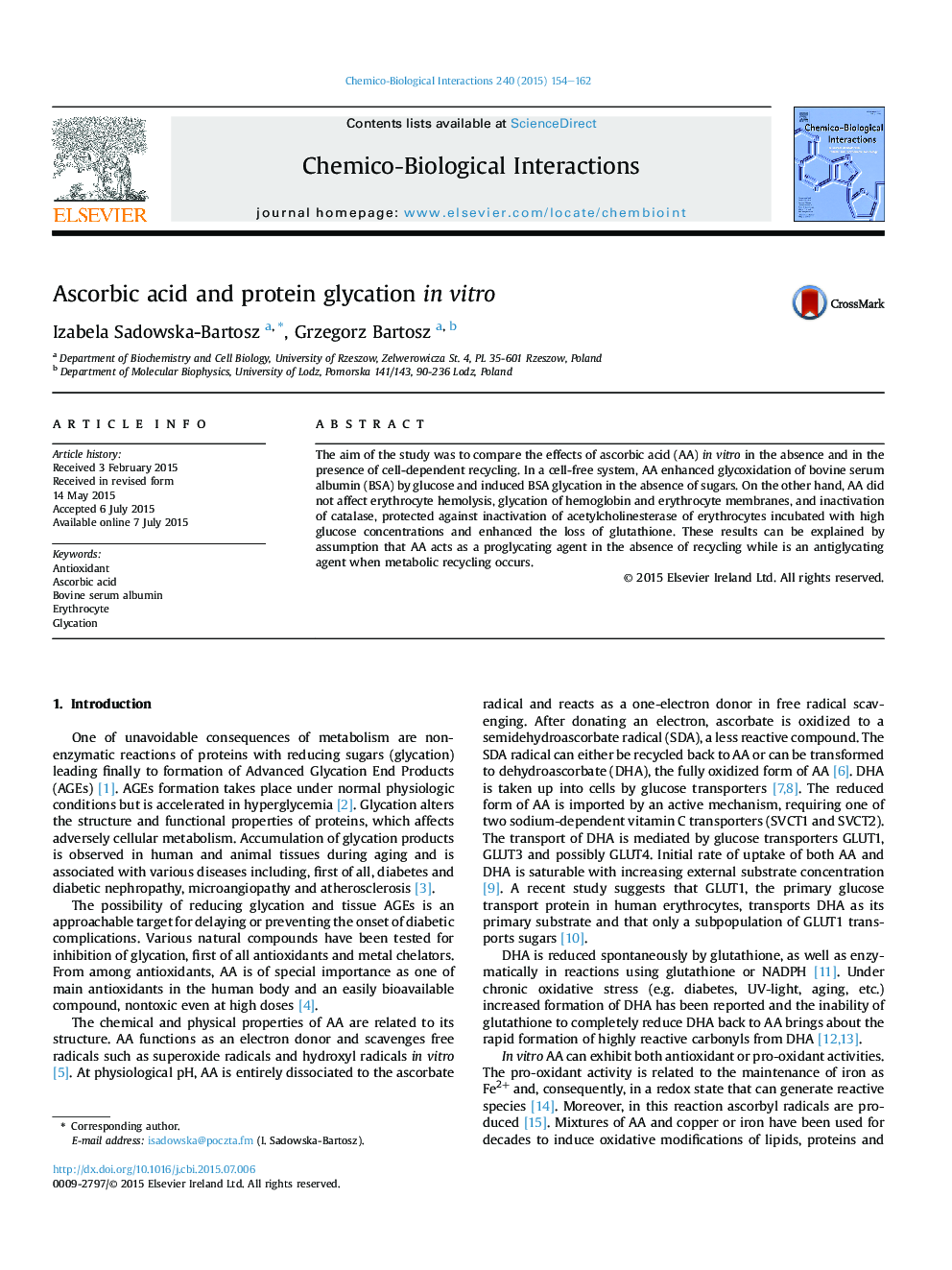| Article ID | Journal | Published Year | Pages | File Type |
|---|---|---|---|---|
| 2580122 | Chemico-Biological Interactions | 2015 | 9 Pages |
•Ascorbic acid (AA) increased glycation of bovine serum albumin (BSA) by glucose.•AA induced glycation of BSA in the absence of sugars.•AA did not enhance effects of high glucose on erythrocytes.•Recycling of ascorbate conditions its antiglycating effects.
The aim of the study was to compare the effects of ascorbic acid (AA) in vitro in the absence and in the presence of cell-dependent recycling. In a cell-free system, AA enhanced glycoxidation of bovine serum albumin (BSA) by glucose and induced BSA glycation in the absence of sugars. On the other hand, AA did not affect erythrocyte hemolysis, glycation of hemoglobin and erythrocyte membranes, and inactivation of catalase, protected against inactivation of acetylcholinesterase of erythrocytes incubated with high glucose concentrations and enhanced the loss of glutathione. These results can be explained by assumption that AA acts as a proglycating agent in the absence of recycling while is an antiglycating agent when metabolic recycling occurs.
Graphical abstractFigure optionsDownload full-size imageDownload as PowerPoint slide
